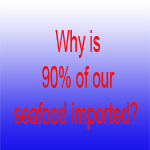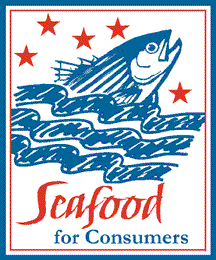Who puts
up the money?
Environmental lawsuits backed by BIG bucks
by Nils E. Stolpe
A while back a letter on the fishing industry
web site Worldcatch.com caught my eye. Written by Jack Sterne, a lawyer
representing environmental interests in Alaska, the letter was a response
to an article discussing the funding of the Stellar sea lion lawsuit by Greenpeace.
It seemed crafted to leave the impression
that going to court was a financial strain on the involved environmental
organizations and that the lawyers representing them were doing so at some
significant level of personal sacrifice as a public service.
Said Sterne in his letter, "There is no environmental
group that I know of that has 'millions of dollars' either for legal fees
or for paying the costs of a lawsuit. Those of us who work for nonprofit
environmental law
firms typically make much less money than we could in the private sector (usually
half as much or more), and we do so because we believe in the causes we represent."
It kind of brings to mind the image of the down-at-the-heels,
struggling yet "committed to the public good no matter what the sacrifice"
lawyers that John Grisham has turned into folk heroes, doesn't it?
Having for some time been interested in the
role that "charitable" foundations play in national and international fisheries
arenas through their support of various non-governmental organizations (NGOs),
I found Stern's letter and the image he was presenting intriguing.
There was something about its tone that didn't
quite ring true with my understanding of who was paying for what and how
much was being paid, in the rarefied world where many environmental organization
folks hang out. Since the larger foundations provide rather detailed information
on their grant making activities on their websites, rather than taking
Sterne's words at face value, I thought I'd do a little background checking
myself.
Sterne works for the law firm Trustees for Alaska.
He wrote that Earthjustice Legal Defense and his firm were co-counsels in
the Stellar sea lion suit and that both are non-profit public interest firms
with the mission of providing legal services to environmental groups. Earthjustice
used to be the Sierra Club Legal Defense Fund. On its web site, Earthjustice
claims that it is the "non-profit law firm for the environment," which, for
more than a quarter century, has represented "hundreds of environmental clients,
large and small, without charge." (If Earth Justice seems familiar, its because
its lawyers also were behind suits on summer flounder, scallops and continued
“overfishing” under the SFA)
Multi-million
dollar gifts
The database on the Pew Charitable Trusts
site revealed that since 1996, Pew has given Earthjustice $9.797 million.
It seems Sterne's understanding that no environmental group has millions
of dollars for legal fees or to pay the costs of a lawsuit isn't all that
accurate. And what about the "needy" clients? Earthjustice lists a
number of organizations as clients that will be familiar to many in the fishing
industry for their "contributions" to the management process.
Among them are:
The Conservation Law Foundation (CLF)
The Center for Marine Conservation (CMC)
The World Wildlife Fund (WWF)
The National Audubon Society
The Natural Resources Defense Council
Each of the first three has received over
a million dollars from Pew since 1996. The Natural Resources Defense
Council (NRDC) has received over $5 million and Audubon, almost $8 million.
While Sterne might be right that these organizations don't have millions
of dollars "either for legal fees, or for paying the costs of a lawsuit,"
it seems as if they do have millions of dollars.
Note that these figures are for grants from
the Pew Trusts. Other foundations, such as Packard, Rockefeller, and
W. Alton Jones, also support them heavily.
Who is
Pew?
As the 800-pound gorilla among sources of
dollars for environmental organizations with an oceans orientation, I thought
it might be educational if I primarily focused on the Pew Trusts.
On its web site, Pew is described as a group
of seven individual charitable trusts established between 1948 and 1979 by
two sons and two daughters of Joseph N. Pew and his wife. Joseph N.
Pew founded Sunoco Inc. Seven of the eleven directors of the Trusts
are Pews. Based in Philadelphia, PA, the trusts have approximately $4.8 billion
in assets and made grants totaling $235.6 million in 2000. Since 1995,
the Pew Trusts have made about $50 million in fisheries-focused grants.
Pew Oceans
Programs
The Pew Fellows Program in Marine Conservation
is designed to "fund innovative work in marine ecosystems, fisheries management,
coastal conservation, and marine contamination."
The Pew Oceans Commission, initially co-chaired
by New Jersey Gov. Christine Todd Whitman and ex-Congressman and Clinton aide
Leon Panetta, is "an independent group of distinguished Americans conducting
a national dialogue on the policies needed to restore and protect living
marine resources."
This "independent group" includes the
chairman of Sunoco Inc., the president of the Center for Marine Conservation,
a trustee of the Rockefeller Brothers Fund (which has provided grants to the
Conservation Law Foundation, the Natural Resources Defense Council, the Center
for Marine Conservation, the American Oceans Campaign, and Audubon), a Trustee
of the Packard Foundation (which has provided grants to the Conservation Law
Foundation, the Natural Resources Defense Council, the Center for Marine Conservation,
the American Oceans Campaign, Audubon, Environmental Defense and SeaWeb),
the president of the American Sportfishing Association, the president of
the Pew Center on Global Climate Change and a recipient of a Pew fellowship.
It also includes two commercial fishermen; one is the president of a trade
association which has been funded by Packard and the other is a director
of a trade association which has been funded by Pew.
Earthjustice,
SeaWeb
While the accompanying table only includes
grants focused on fisheries and/or oceans issues, Pew also awarded Earthjustice
$5.5 million last year to establish a center to coordinate public education
initiatives to "enhance wilderness protection efforts by the US conservation
community."
This chart lists the grants
that the Pew Charitable Trusts have made in the last several years to these
major fisheries/oceans related projects: the Pew Fellows Program; SeaWeb;
Earthjustice Legal Defense Fund; and the Pew Oceans Commission.
| Grantee |
Amount |
Duration |
Purpose |
| The Regents of the University
of Michigan |
$3,000,000 |
4 yrs. |
For the 1997 and 1998 Pew Fellow classes |
| New England Aquarium Corporation |
$2,631,000 |
5 yrs. |
For the 1999 and 2000 Pew Fellows classes |
| New England Aquarium Corporation |
$3,000,000 |
4 yrs. |
For the 1997 and 1998 Pew Fellow classes. |
| New England Aquarium Corporation |
$1,568,000 |
3 yrs. |
For administrative expenses to operate the Pew Fellows Program
for fiscal years 2000 through 2003. |
| New England Aquarium Corporation |
$1,500,000 |
3 yrs. |
For the 2001 Pew Fellows class. |
| New England Aquarium Corporation |
$1,000,000 |
3 yrs. |
To cover 1996 fellowships. |
| New England Aquarium Corporation |
$769,000 |
2 yrs. |
To cover administrative expenses to operate the Pew Fellows Program
for the 1999 and 2000 fiscal years. |
| New England Aquarium Corporation |
$432,000 |
19 mos. |
To cover administrative expenses to operate the Pew Fellows Program
for the 1997-98 fiscal year. |
| Natural Resources Defense Council,
Inc. |
$1,453,000 |
13 mos. |
To provide continued support for SeaWeb, a public education initiative
on ocean issues. |
| SeaWeb |
$1,600,000 |
1 yr. |
For a public education initiative on ocean issues. |
| SeaWeb |
$1,200,000 |
2 yrs. |
For core programs. |
| Earthjustice Legal Defense
Fund |
$1,475,000 |
2 yrs. |
To launch the Ocean Law Project, a coordinated legal effort to
restore marine ecosystems and fisheries. |
| Earthjustice Legal Defense
Fund |
$1,233,000 |
15 mos. |
For continued support of the Ocean Law Project, a coordinated
effort to restore marine ecosystems and fisheries. |
| Earthjustice Legal Defense
Fund |
$269,000 |
18 mos. |
To implement the Ocean Law Project in the Mid-Atlantic, Gulf of
Mexico, Pacific and Western Pacific regions. |
| Strategies for the Global Environment,
Inc. |
$3,500,000 |
30 mos. |
For establishment of a national
oceans commission. |
SeaWeb is the public outreach arm of Pew's ocean
interests. According to XX, "SeaWeb is a project designed to raise awareness
of the world ocean and the life within it. The ocean plays a critical
role in
our everyday life and in the future of our planet. We believe that
as more people understand this and begin to appreciate the earth as a water
planet, they will take actions to conserve the ocean and the web of life
it supports."
SeaWeb has also received approximately $1.33 million dollars from
the Packard Foundation.
In addition to the $24 million listed in the table, Pew has provided
about $34 million more in fisheries/ocean focused grants, and has donated
a total of almost $90 million to the "conservation" community since 1995.
What's
Pew's motivation?
Why has Pew spent so much on fisheries issues?
What has Pew -- or the public -- gotten for its money? And, most importantly,
what has the impact of these millions of dollars been on the fishing industry,
the fisheries it depends on, and the management process that's supposed to
keep it all going?
The answers to those questions could be critical
to the future of the commercial fishing industry. While I can't provide
those answers, I can provide enough background information to help you draw
your own conclusions. I'll do that in next month's edition.
Supported by the Fishermen’s Dock Co-op, Lund’s
Fisheries, Atlantic Capes Fisheries, Viking Village Dock, Export, Inc., Agger
Trading Corp. the Belford Seafood Co-op and Hi-Liner Fishing Gear.
|




